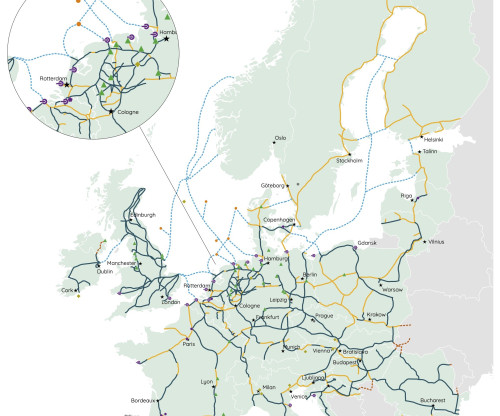Rystad Energy expects strong growth in hydrogen pipelines through 2035
Green Car Congress
APRIL 11, 2023
Hydrogen pipelines are already used to supply industrial hubs (at petrochemical plants for example). This is based on national analysis of availability of existing natural gas infrastructure, future natural gas market developments, and future hydrogen market developments. In the UK, 62.5%












Let's personalize your content